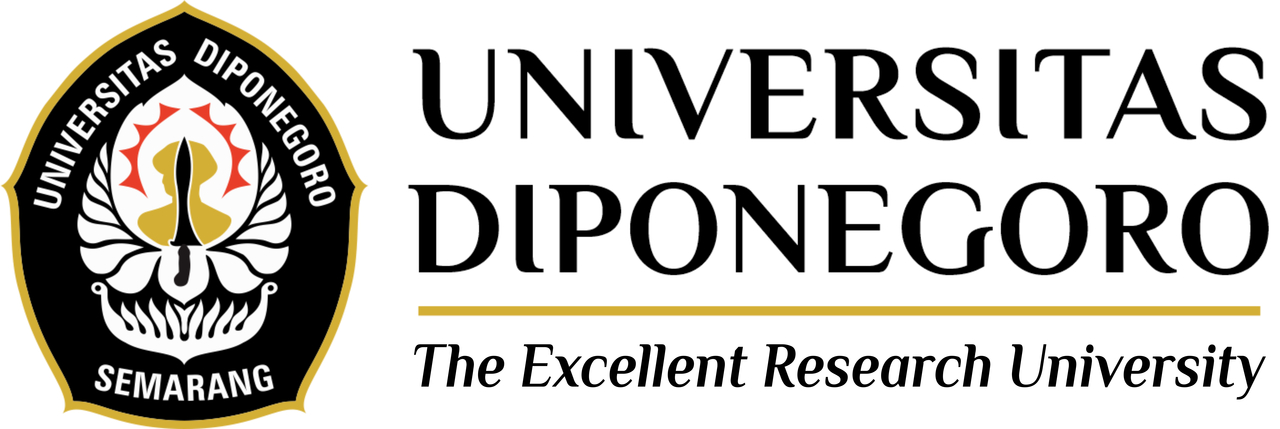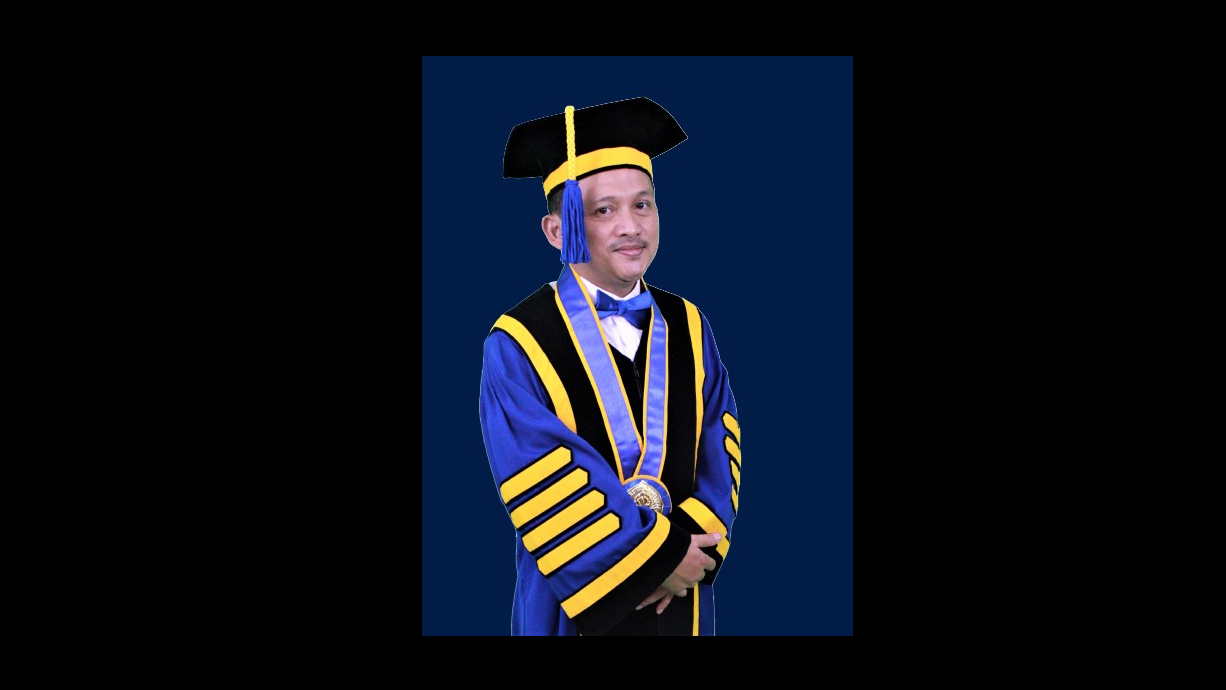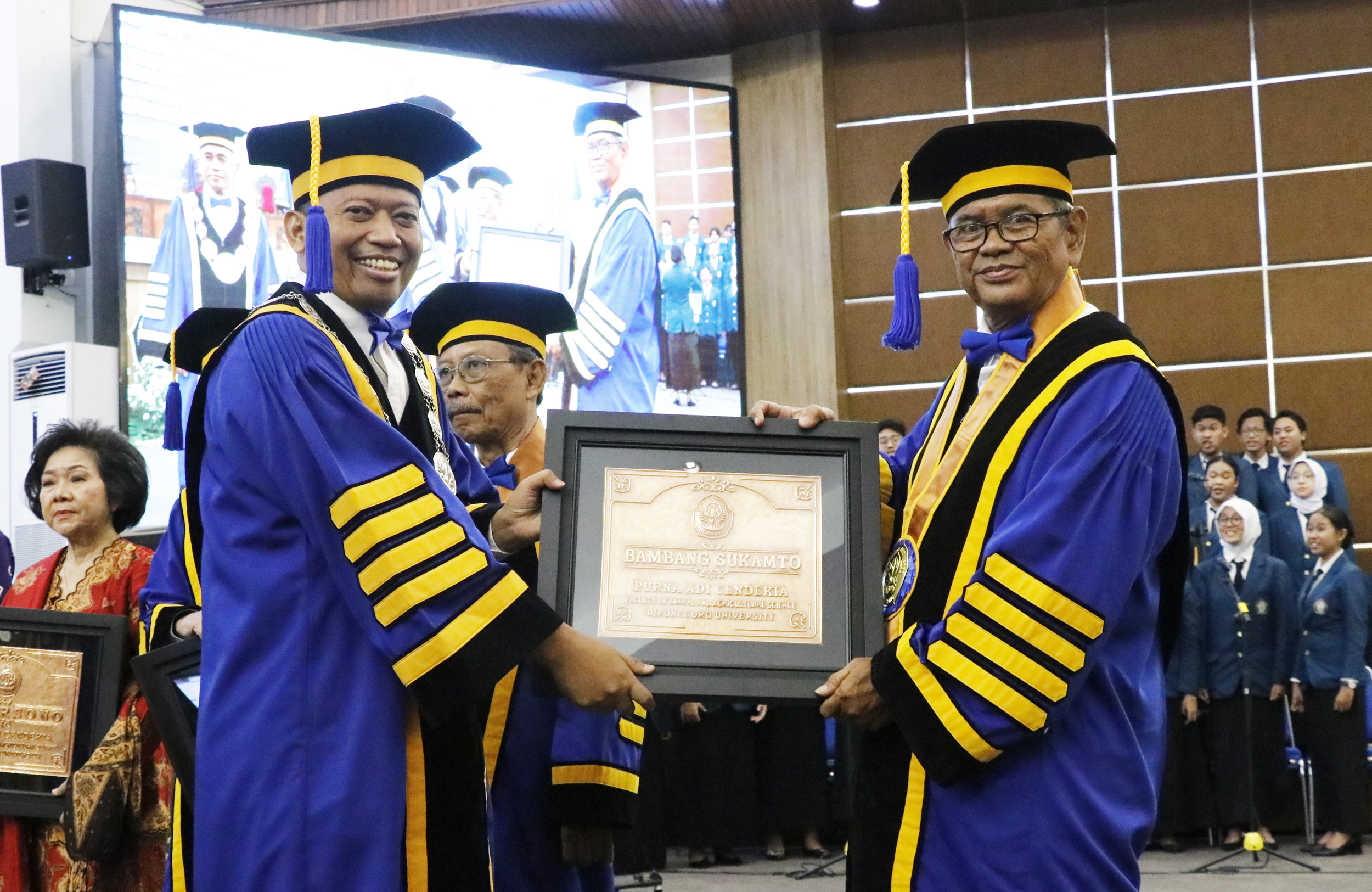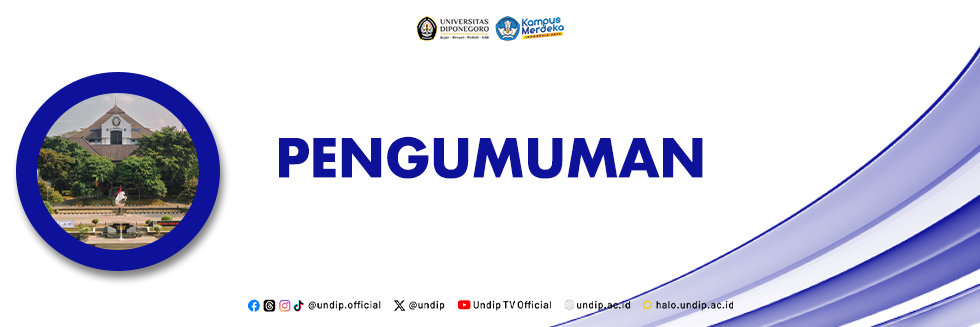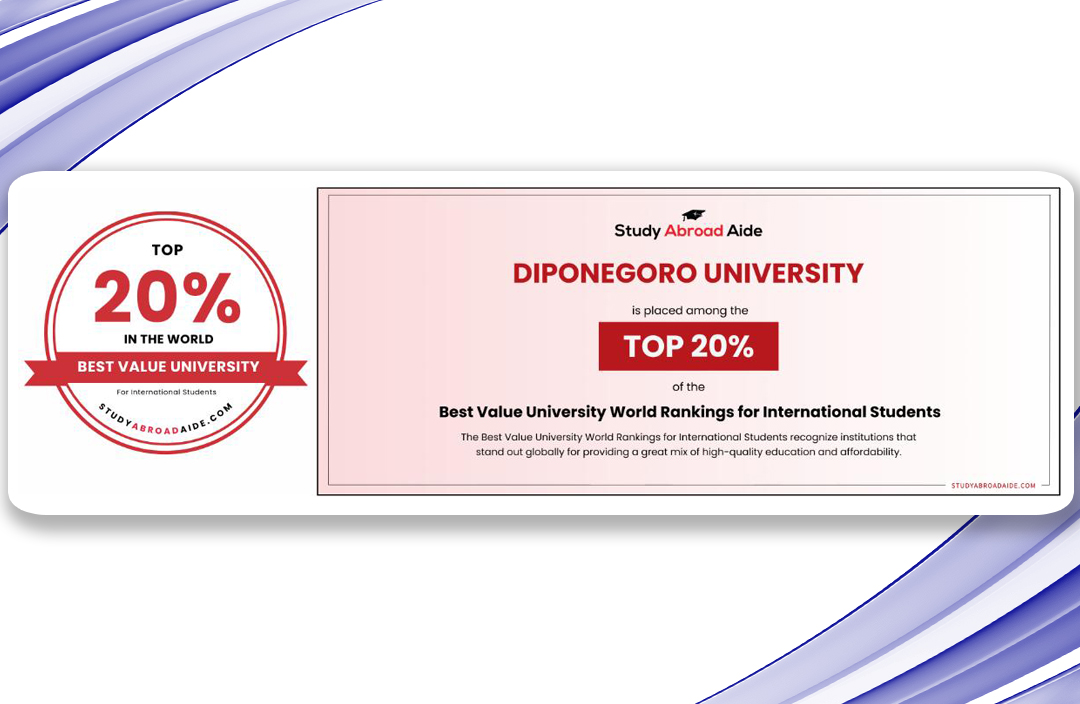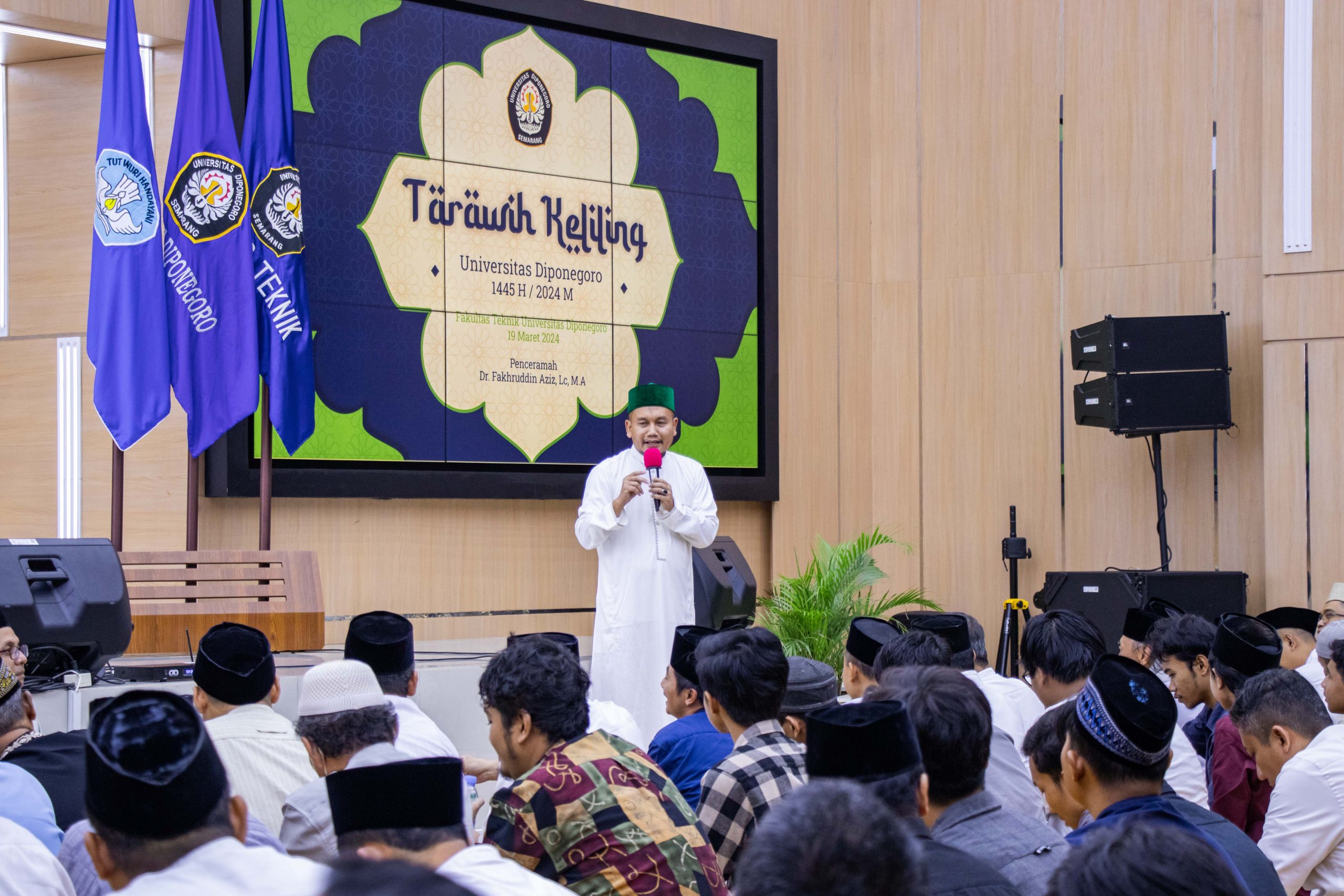SEMARANG – Professor of Department of Chemical Engineering, Faculty of Engineering, Diponegoro University (UNDIP), Prof. Dr.-Ing. Suherman, ST, MT, developed a dryer to improve the quality and quantity of agricultural products with a device called “Hybrid Solar Dryer”. This closed method of drying technology, besides its main function to optimize the quality and quantity of food products, is also able to dry faster, more hygienically, and at an affordable cost.
In his first scientific speech as a professor of chemical engineering that was delivered at Open Session of Undip Academic Senate, on Tuesday (8/6/2021), Suherman, who earned a doctorate degree from Universität Magdeburg Germany, revealed that drying food ingredients can increase the economic value of the original product. “For example, when tomatoes are harvested, the price can drop to only Rp. 500 per kg, but after being dried, it increases to Rp. 315,000 per kg,” he said when delivering his speech entitled “Development of Hybrid Solar Dryers to Improve the Quality and Quantity of Indonesian Food Products”.
According to Suherman, who now serves as Head of Department of Chemical Engineering, Faculty of Engineering Undip, drying is also the most superior method of food preservation compared to freezing and canning. Drying technology can also improve the quality of imperfect food products.
There are two drying methods namely traditional and modern. Food Small and Medium Enterprises (SMEs) in Indonesia generally use the traditional drying method, which is exposed to direct drying in the sun. This drying method will cause product loss between 20–50%, slow drying rate, less hygienic and less clean, and also requires sunny weather.
Traditional drying also causes a lot of nutrients to be lost, besides that it requires a large space. Therefore, it is necessary to develop a closed solar drying method that will improve the quality and quantity of Indonesian food products because it has the advantages of fast drying rate, high hygiene, can be done in any weather, better nutrient retention, and does not require a large space.
To produce a decent dryer design, the physical attributes of the dryer must be good include the thermal behavior of the dryer, the drying behavior of the product, the quality of the dry product, and the economic feasibility of the dryer. “It is also important to pay attention to the type of commodity that is to be dried,” said a graduate of Undip Chemical Engineering Undergraduate Program in 1999 who immediately received a scholarship to continue his Master studies at Bandung Institute of Technology.
Currently, several laboratory and industrial scale of hybrid solar dryers have been designed and can be operated properly. It is called hybrid solar because it is a combination of solar energy with other energies such as biogas, firewood and LPG. This device has been successfully tested to dry tapioca flour, rice, shallots, mocaf flour, ginger, tomatoes, coffee, and several other agricultural commodities. The trial results show that the device is very feasible technically and economically.
Coffee beans can be dried in 10 hours much faster than the traditional one which takes more than a week. The average dryer energy efficiency is 54.15%. For this reason, a hybrid solar dryer is developed to help Coffee SMEs in Temanggung Regency to be able to dry coffee beans with an initial moisture content of 55% to 8-10%.
“With a hybrid solar dryer, the quality of the coffee produced is in accordance with Indonesian National Standard. Drying is very important because 60% of the quality of coffee is determined by the drying process. Usually drying takes 2-3 weeks and is very dependent on the weather, besides that, when laying coffee, it needs to be turned over every 1-2 hours. In the rainy season, coffee is forced to be sold at low prices because of its high water content. Coffee has to be sold to avoid spoiling,” said the lecturer who teaches courses on Food Processing Technology, Clean Technology, Separation Technology, Humidification and Drying, Fluid and Solid Transportation, Combustion Technology, and Hydrogen and Fuel Cell.
Another drying product that has been developed and has worked well is Small and Medium Enterprises of glass noodle in Klaten Regency. Previously they could not work when it rained and took a day to dry and with a closed solar dryer the work could be done in only 2 hours.
Suherman and his team also helped SMEs of tapioca in Pati Regency which have great economic potential. There are about 400 SMEs in the region with a product value of IDR 3 billion per day. Previously they took two days to dry the product and could not produce if it rained. “With the machine we developed it only takes two hours and can produce products with Indonesian National Standard,” said Suherman who is currently serving as the Chair of Indonesian Chemical Engineering Education Association.
The hybrid solar dryer for firewood has been used for mocaf flour in Wonogiri. Mocaf flour is modified cassava flour that is fermented until it is equivalent to wheat flour which is still imported. In Palangkaraya, Central Kalimantan, it is used for drying shallots, in collaboration with the local government and the Ministry of Agriculture.
The man who was born in Cirebon, on August 4th 1976, and took his primary and secondary education in the City of Shrimp, when being asked about his achievements as a professor at a relatively young age, said he is very grateful. His father is a salt farmer who is a graduate of elementary school, while his mother is a traveling batik trader who does not finish elementary school, but all of their children receive good education. “The lecturer should be able to become a professor, apart from the obligation to achieve the doctorate degree,” said the alumni of Cirebon 3 High School.
The father of three children from his marriage with Suaibatul Aslamiyah S.Pd.I is determined to develop innovations continually, especially for food products so that Indonesian farmers can enjoy the best results of their efforts. “Being a professor is like entering the gates of a new life. There is a challenge to provide useful knowledge, no matter how simple it is,” he said. (PR team)
Translated by: Titis (Public Relations)
